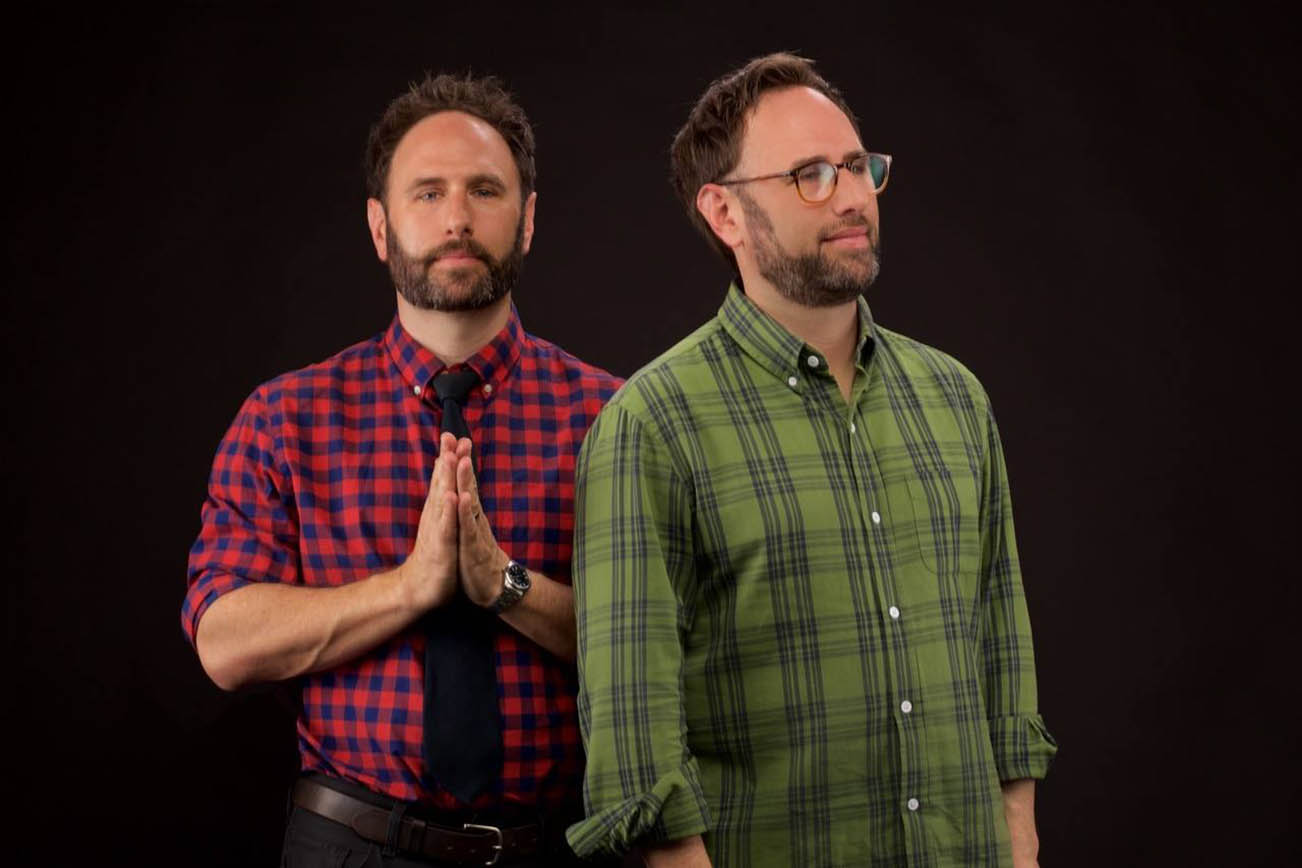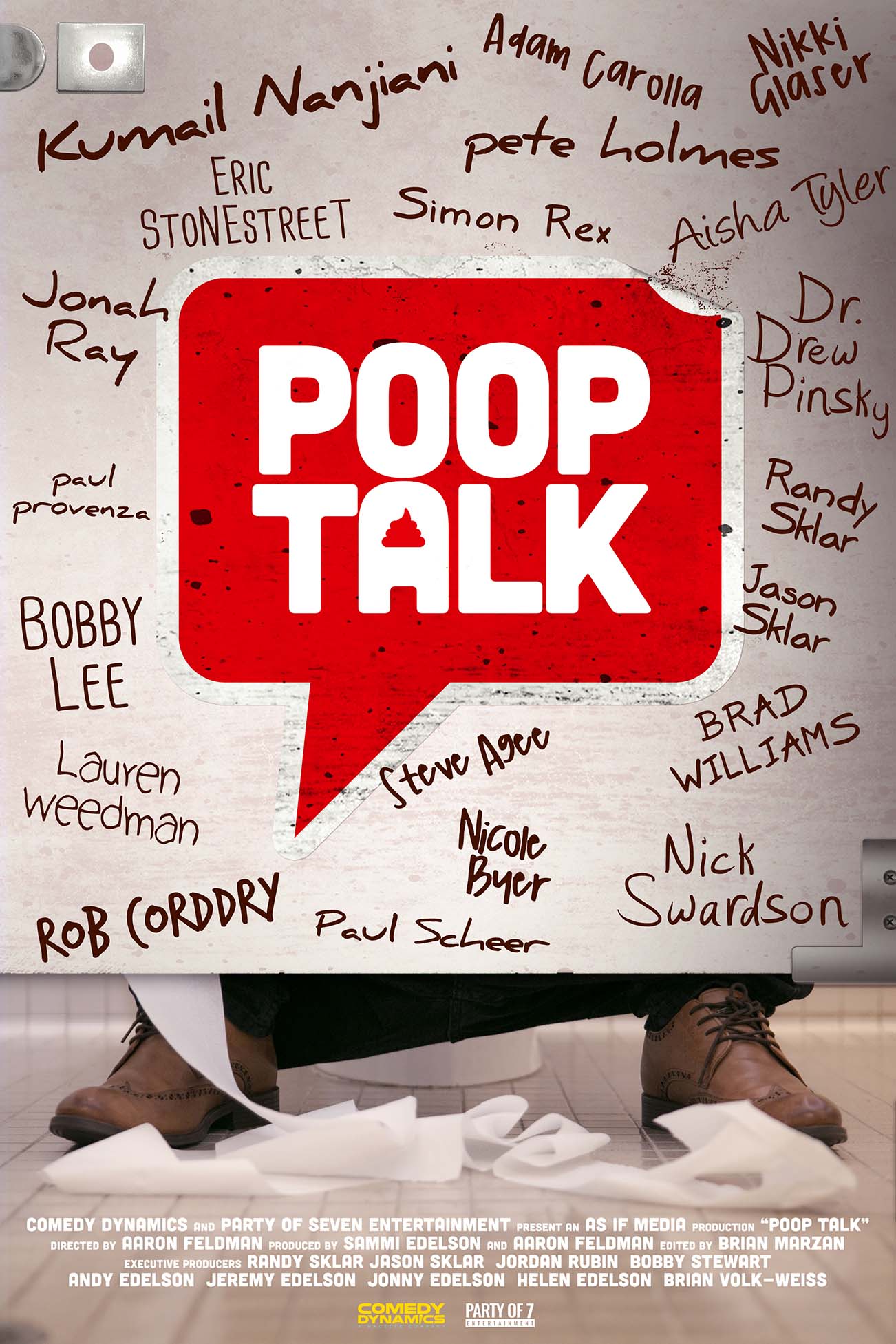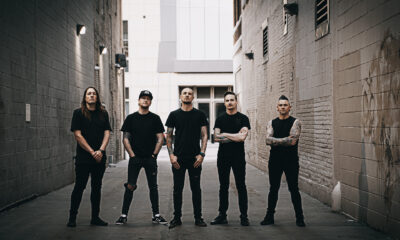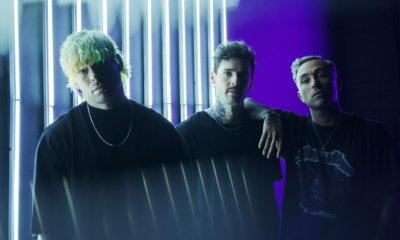Interviews
RANDY & JASON SKLAR Discuss Their ‘Poop Talk’ Documentary & How Music Plays into Their Stand-Up Comedy
When talking with Randy and Jason Sklar by phone, music was a constant topic being referenced. We also covered their comedic documentary Poop Talk and forthcoming audiobook for Audible, Sklars & Stripes.

Whether you know Randy and Jason Sklar from their stand-up comedy, their acclaimed podcasts (e.g. Sklarbro Country, View From The Cheap Seats), their appearances in film and television projects (e.g. It’s Always Sunny In Philadelphia, Curb Your Enthusiasm, Entourage, Better Call Saul), and/or their hosting (e.g. The Jim Rome Show, Cheap Seats), the key is that they are one of the more recognizable acts in comedy. The latest project from The Sklars is perhaps their most ambitious, a comedic documentary named Poop Talk, which they produced and also appear in. While not fecal-centric like Poop Talk, the two are also working on an also-creative-and-interesting forthcoming audiobook for Audible known as Sklars & Stripes, as focused on stand-up material they wrote for specific U.S. city audiences. Simply put, the Sklars are always working on something, and fans can rest assured that each project will carry their distinct brand of comedy within it.
When talking with Randy and Jason Sklar by phone, music was a constant topic being referenced. On Sklarbro Country, the two not only regularly interview great musicians, but they also feature music from new releases — much of which from up-and-coming artists — coming in and out of commercials. In turn, during our interview, I inquired about the role that music plays in the lives of both Los Angeles-based performers. More on all things Sklar can be found at www.supersklars.com.
Check out the trailer for Poop Talk here.
The first time I saw you guys live was the Toyota Comedy Festival in New York about 20 years ago, with Andy Dick. When you guys were on-stage, the kind of stand-up that you were doing then is very similar to what you’re doing now in that you’re both on stage, finishing each other’s sentences, etc. But when you two first started doing stand-up, were you doing it the exact same way back then?
Randy Sklar: When we started doing stand-up, I think we thought that we had to talk about being twins a lot, which I think that was a bit of a mistake. What we learned relatively quickly, and we were lucky that we came up in the midst of the alternative movement in New York as it was starting to grow… That was a stroke of luck for us because the alternative movement was all about not doing something obvious and really trying to either surprise the audience or twist something that we all have become used to in comedy. So it helped us get away from doing just material about being twins and reach for something more.
Yes, the delivery system is kind of similar and you do get this sense that we operate on a similar wavelength. We know how to sort of listen to each other on-stage while we’re talking and have this cool flow. But at the same time, we don’t have to talk about being twins the whole time. That’s evident, we can show the relationship by the way we communicate with each other on-stage. I think we’ve found a way over time to make our stand-up personal without making it like cursory, to go deeper, which again relates to the film that we just made. Our goal with talking about poop was not to just hit all the broad-based poop jokes that we all know we can make, but to go deeper into the human condition and the attitudes around it. That’s what we’re trying to do, that’s what we’ve been trying to do with our stand-up.
When you started your podcast, you were thought of as stand-up comics. Since then, you guys have wound up in a lot of acting roles. Now you’re producing this film. Do you find that people nowadays are recognizing you primarily as podcasters and then learning that you do stand-up?
Randy Sklar: That’s an interesting thing, yeah. I think those who listen to our podcast know that we do stand-up, we promote it all the time… We did a couple episodes of Better Call Saul in this third season, and for some people they were introduced to us. For them to see us on that and then kind of go down the rabbit hole and see some of the other things that we do, it’s a wonderful sort of entry into the rest of the stuff that we do. We have a lot of content that comes out regularly, so for people to get it, it’s not like we do one thing every six months. We are doing two podcasts a week, occasionally get to Jim Rome’s radio show and then stand-up and then the other things. So there’s a lot of stuff for people to consume once they get acquainted with us.

Beyond the sports angle with everything, a lot of people love the music angle of your podcast. When I first saw your stand-up I remember you had a good routine about “Roll With The Changes” by REO Speedwagon. Now, when did you taste in music skew from being classic rock-centric into having more of an indie feel?
Jason Sklar: I feel like that sort of started happening as we moved to Los Angeles. Around the turn of the century, ’99, 2000, our taste started to change, we started performing at some festivals. I remember we did the Bumbershoot Festival in Seattle a couple years in a row around like 2000, 2001… Somewhere around there, and that introduced us to so many artists. Like when you go see you know Elliott Smith live and when you go see The Black Keys at 11:00 AM with a hundred other people, you’re introduced to that. Suddenly you’re like, “Wow, there is a world of music that we need to start getting tapped into.”
Randy Sklar: I think when we started performing at Largo in Los Angeles, which is a really amazing music venue mixed with comedy and all that other live stuff. I don’t know why I said “all that other live stuff,” because it is basically just music and comedy, fire-eaters, like a circus or something… No, it’s just music and comedy. But like we got opened up to artists like you know Aimee Mann and stuff like Michael Penn and Jon Brion, amazing music on an independent level. We started to develop all this respect for independent bands and we felt a similar plight and have become friends with a lot of artists. Then we felt like, “If we have a platform like a podcast, or we go on Jim Rome’s radio show, and we get a chance to pick our bumper music in and out, let’s introduce people to bands like The Hold Steady.”
Jason Sklar: Or The Sheepdogs.
Randy Sklar: Yeah, that whole thing has been great. Then in the last few years, my wife bought me a record player and I have been just consuming great records from the past 40 years, and just ferociously collecting records. Jay just got a turntable this past, our birthday, around our birthday this year. He is now on the pathway to getting into records, which now that we have kids it’s so fun to be able to share old Neil Young, obscure Beach Boys albums with them. The Rolling Stones’ side two of Tattoo You is one of my favorite sides of an album ever. I know it’s not indie, but to get those guys into it… You’re just like, “Okay, this is wonderful.”
Jason Sklar: Or my kids last night, we were listening to the first side of Belle & Sebastian’s If You’re Feeling Sinister, and they were into it. I was like, “This is a great moment.” So music has become a huge part of our lives, a huge part of our podcast, every year we do a music episode of our…
Randy Sklar: Of our favorite stuff that we found that year.
Jason Sklar: Yeah, with other people who love music, so we love to put that out there.
Watch Randy and Jason commenting on proper urinal etiquette.
What are the filters or ways that you usually find out about new artists? Obviously there are infinite ways to find out about new music, but the question is always what the filter is.
Randy Sklar: Yeah, we listen to a lot of KCRW, which is sort of like the North American independent radio station. There’s a great station out of Minneapolis called The Current, and that station you can get on our local NPR. I think it’s now national, you can get it anywhere nationally. The Current is a great station, they play tons of like indie rock and whatnot. You’ll just be like in a store somewhere shopping or you’ll be looking at clothes and then just get your phone any time you hear a good song and Shazam it and see if you can get to it. The other thing is we have friends who are always out there finding out about, “Hey, have you heard this person’s new release?” They’ll send music to us our way.
Between that and the podcast and some of the shorts that you guys have done in the recent years, it sounds like you guys are in a unique position where you’re choosing the projects that you work on and you’re not really trying to cater your material to a specific audience, that you’re being yourselves. Have you found that to be the case?
Jason Sklar: Yes, 100 percent. I mean, I think what we’ve figured out and what’s exciting about being a creator right now in this moment is that there are more media outlets and possibilities than there have ever been in our career. There are more opportunities to create content for people that is personal, like the podcast, like stand-up and like I would say this poop documentary and certainly this audiobook. I mean, those are all projects that were in the truest sense of the word independent, in that they are very very close to the vision that we had going into creating it.
So no interference, we’re not catering our thing or pandering. We’re just trying to create something that if we weren’t us we would want to consume. We come from that place and there’s something incredibly satisfying about that, you know? It may not always be the most lucrative choice, but for us you know artistically, being able to do things like this, like the poop doc and the Sklars & Stripes project and the podcast…
Randy Sklar: I would argue, and I would add Jason, that one of the great things that I took away from doing Poop Talk was pretty much 98 percent of the people we asked to do it did it. The other two percent of people just, they couldn’t do it. Nobody really turned us down and what that said to me and what’s great is that we have created a lot of favor throughout the years with our friends in the comedy world, which means that we did something right. We’ve gained the respect of a lot of people and their trust that, “Hey, we’re going to have you in this movie and we’re going to make you look good. We will make sure to be very careful to make sure that you come across great in this movie.” Nobody had a question about that, and so as a result you get people being really honest, talking freely, and I think it is a movie that’s refreshing.
So in closing, any last words for the kids?
Randy Sklar: My hope is that people continue to support independent art, whether it be a podcast, whether it be going to see live stand-up comedy or in the immediate sense going to see this poop doc. It’s the only way to ensure that more stuff like it will continue to be made. It is in our hands as people, as consumers and as fans to send a message to creators to keep doing it, and the way that we do that is to support it.
Watch a clip of The Sklars visiting Rich Eisen in the studio.
-

 Alternative/Rock6 days ago
Alternative/Rock6 days agoTom Walker Puts on Spellbinding Performance at Leeds O2 Academy
-

 Alternative/Rock2 weeks ago
Alternative/Rock2 weeks agoThe Warning Shake the Foundations of a Sold-Out Leeds Stylus [Photos]
-

 Alternative/Rock6 days ago
Alternative/Rock6 days agoThe Cruel Knives Headline Top Night of British Rock at Manchester’s The Lodge [Photos]
-

 Hip-Hop/Rap1 day ago
Hip-Hop/Rap1 day agoFormz: “I was always the confident kid in school, with a passion for entertaining and being the centre of attention..”
-

 Alternative/Rock5 days ago
Alternative/Rock5 days agoThe V13 Fix #012 w/ Dååth, Unearthly Rites, maybeshewill and more
-

 Alternative/Rock2 weeks ago
Alternative/Rock2 weeks agoThe V13 Fix #011 w/ Microwave, Full Of Hell, Cold Years and more
-

 Indie2 weeks ago
Indie2 weeks agoDeadset Premiere Music Video for Addiction-Inspired “Heavy Eyes” Single
-

 Interviews2 days ago
Interviews2 days agoKill The Lights Michael ‘Moose’ Thomas Talks Success, International Bandmates and more












